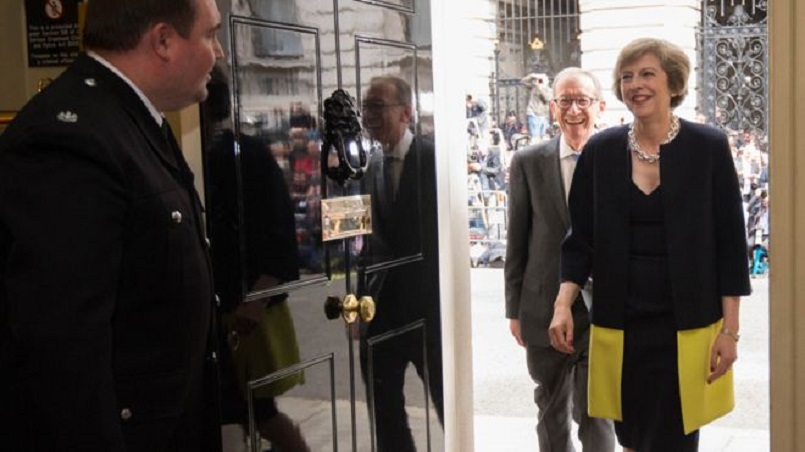
If Hillary Clinton wins the American presidential election in November, there will be women in charge of five of the leading countries and organisations in the world - the US, the UK, Germany, the IMF and the US Federal Reserve.
That's three of the world's biggest economies and two of the most important financial institutions. There's also the reasonable possibility of a woman becoming the new UN Secretary General.
Obviously we don't yet know about either the US or the UN, but let's have a bit of fun and imagine for a moment a world run by women. Or at least a significant chunk of the world, including the other 22 women who run countries - in which we include monarchs, presidents and prime ministers.
What does it actually mean? What actually changes if women are in those top jobs?
On one level it is huge. It's certainly unprecedented and a big crack in the glass ceiling. Half-a-century ago it would have been unimaginable to see so many women running the show.
If you believe, as I firmly do, that we are all better off with more women in top positions in every area of life, then this is something to celebrate.
A wealth of global studies now show us that organisations perform better when there is a mix of men and women in charge.
Something about the combined different experiences and styles seems to make for better decisions, it means too that half the talent in the world isn't excluded from the selection process.
Having women prime ministers, presidents, secretaries general, chancellors, chairwomen and managing directors also sends a visible message to younger women that they too can fill those slots.
They can then see themselves in 10 Downing Street or the Bundestag - and not just in isolated cases but across the board.
But part of me wonders whether even this is enough to change leadership styles that are still heavily masculine.
The people who study global business now seem to think that what we need in business - and I would add politics, media, the military, medicine etc - is not just a few more women in the top slots, but a more radical shift in management style to something that is actually more female.
Part of the reason organisations do better with more women is that women manage differently. This has been somewhat controversial, but women bring to the table certain qualities that men possess less often.
We tend to be good at reading rooms, we have high emotional intelligence, we listen well, we tend to prefer consensus building over conflict and we are good mentors. These are slight generalisations but they aren't far off the mark.
It is hard for one woman in one top job to bring about single handed that much needed change in tone.
So this is a very welcome start but it doesn't alter everything.
What these outlier senior women now need is an army of women to join the army of men under them.
It's then that our world will really change.
